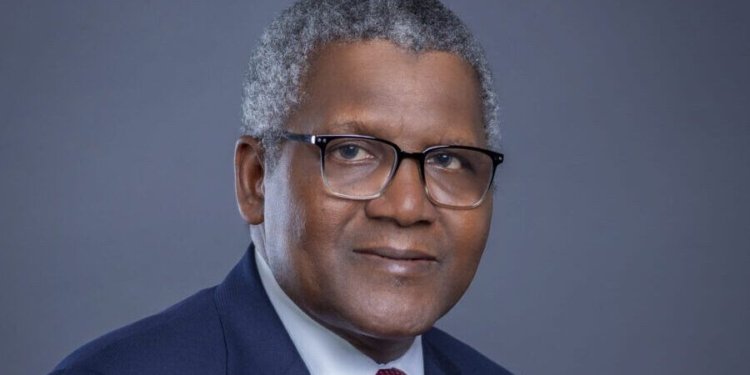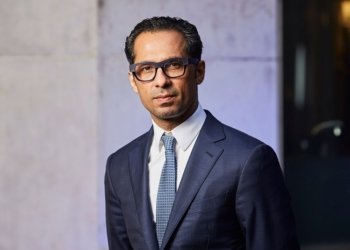What does it take to build a $25 billion empire from scratch in one of the world’s most challenging business environments?
Aliko Dangote stands as Africa’s wealthiest individual and the richest Black person globally. His remarkable journey began with a small trading firm and grew into a massive conglomerate.
The Dangote Group now dominates multiple sectors across the continent. From cement production to sugar refining, this business powerhouse transforms Africa’s economic landscape.
His influence extends beyond commerce. In 2011, the Nigerian government appointed him to their economic management team. This recognition highlights his significant role in shaping the country’s development.
The conglomerate’s holdings include massive plants and refineries. The recent oil refinery project represents one of Africa’s largest industrial investments.
Key Takeaways
- Aliko Dangote is Africa’s wealthiest person and the richest Black individual worldwide
- His net worth reached nearly $25 billion as of 2025
- The Dangote Group spans multiple industries including cement, sugar, and oil
- He was appointed to Nigeria’s economic management team in 2011
- His business empire significantly impacts Africa’s economic infrastructure
- The conglomerate includes one of the continent’s largest oil refineries
- His philanthropic efforts work through the Aliko Dangote Foundation
Aliko Dangote: From Humble Beginnings to African Titan
Behind the $25 billion empire lies a journey that started with modest roots and family guidance in Northern Nigeria.
Early Life in Kano and Family Business Heritage
Born in April 1957 in Kano, this future business leader entered the world with a meaningful name chosen by his maternal grandfather. The name “Aliko” translates to “the victorious one who defends humanity,” foreshadowing his future impact.
His family heritage included remarkable business success. His maternal great-grandfather had been the wealthiest person in West Africa until 1955. This created a powerful business legacy within the family.
The country of Nigeria provided the backdrop for his early development. Growing up in a prominent Hausa family, he absorbed business principles from an early age.
Education at Al-Azhar University and Early Entrepreneurial Spirit
His educational journey took him to Al-Azhar University in Cairo. There he earned a degree in business studies, building his formal knowledge foundation.
Even before university, his entrepreneurial spirit showed clearly. At just eight years old, he sold boiled sugar sweets to classmates. This early experience taught him basic business principles.
The education at Al-Azhar University combined with his natural business instincts. This combination would prove crucial for his future success.
The $3,000 Loan That Launched an Empire
The pivotal moment came with a loan of $3,000 from his uncle. This initial capital launched his first serious business venture.
He began by trading food products, including commodities like salt. This humble start would eventually grow into industries including cement production.
That initial loan from his uncle demonstrated family support for his ambitions. Many people helped him during these early stages.
The business acumen developed during these formative years established his risk-taking approach. His grandfather‘s influence remained a guiding force throughout his career.
Building the Dangote Group Conglomerate
Strategic vision and perfect timing turned a small trading company into a continental economic force that dominates multiple sectors.
The evolution of this massive enterprise shows how smart business decisions can create lasting impact across Africa’s economic landscape.
From Commodity Trading to Industrial Manufacturing
In 1977, the foundation was laid with a simple commodity trading business. The company imported basic goods like sugar, salt, and food products.
By 1981, the operation expanded significantly. Two new companies were established to import rice and bulk materials including steel and aluminum products.
This early phase focused on understanding market needs. The strategy involved identifying essential commodities that African markets required.
Strategic Expansion During Nigeria’s Economic Transitions
A major turning point came during Nigeria’s Cement Armada period. The government authorized massive cement imports totaling 16 million metric tons.
The company secured an import license and entered the cement sector. This move marked the beginning of industrial-scale operations.
Strategic acquisitions followed, including a truck fleet for cargo transportation. This vertical integration ensured control over distribution networks.
Political changes in 1999 created new opportunities. The privatization of Benue Cement Company allowed further expansion in cement production.
Diversification Across Multiple African Markets
The conglomerate structure enabled risk management across different business units. Profits from one area could support expansion in others.
Geographic diversification became a key strategy. The company established presence across Benin, Cameroon, Ghana, and South Africa.
This pan-African approach reduced dependence on any single market. It also created economies of scale across the continent.
The holdings now include manufacturing plants and distribution networks. Recent projects include massive refinery developments.
This diversified approach positions the conglomerate as a truly African business powerhouse with influence across the world.
Major Business Divisions and Current Operations
Diversified industrial operations spanning construction materials, food processing, and energy production drive the conglomerate’s ongoing expansion. Each division maintains strong market positions across African nations.
Dangote Cement: Africa’s Largest Cement Producer
The cement division represents the cornerstone of the business empire. With $3.7 billion revenue in 2023, it stands as Africa’s dominant producer.
This manufacturing giant operates multiple plants across the continent. Advanced technology ensures efficient production and consistent quality.
The company supplies construction materials for infrastructure projects. Its market leadership supports Africa’s growing development needs.
Dangote Sugar Refinery: Regional Dominance in Sweeteners
The sugar refining operation ranks among Nigeria’s largest producers. It commands significant market share across West Africa.
This division processes raw sugar into various consumer products. Strong distribution networks ensure widespread availability.
Regional dominance in sweeteners provides stable revenue streams. The operation supports local agriculture through raw material sourcing.
The Massive Dangote Oil Refinery Project
The oil refinery represents one of Africa’s largest industrial investments. Commissioned in 2023, it addresses Nigeria’s fuel import dependency.
This massive project boasts 650,000 barrels per day capacity. It significantly enhances Nigeria’s energy independence despite being an oil-producing nation.
The complex includes integrated facilities beyond crude processing. A fertilizer plant and power station complement the main refining operations.
Job creation during construction reached enormous scale. Permanent positions continue supporting local employment after completion.
NASCON Allied Industries and Other Holdings
NASCON Allied Industries forms another crucial component of the diversified portfolio. This subsidiary focuses on food processing and manufacturing.
The allied industries segment includes salt production and seasonings. These operations complement the broader food processing strategy.
Other holdings span various manufacturing and distribution sectors. This diversification reduces risk while maximizing synergies across business units.
Integrated supply chains connect different divisions efficiently. Shared resources and expertise enhance overall operational performance.
Wealth Trajectory and Philanthropic Endeavors
The remarkable financial journey of Africa’s wealthiest individual extends beyond personal fortune to meaningful social impact. His wealth creation and redistribution strategies demonstrate a unique approach to business leadership.
Forbes Rankings and Net Worth Evolution Since 2008
His debut on the Forbes Billionaires List in 2008 marked a significant milestone. The initial valuation stood at $3.3 billion, establishing him as a major global business figure.
The 2009 financial crisis temporarily reduced his net worth to $2.5 billion. This fluctuation demonstrated how global economic conditions affect even the most successful entrepreneurs.
A dramatic recovery followed with the establishment of Dangote Cement. By 2011, his wealth surged to $13.8 billion, reflecting the cement sector‘s massive potential.
Current estimates place his net worth between $23.8 and $28.1 billion. This represents one of the most impressive wealth growth stories in the business world.
The Aliko Dangote Foundation and Health Initiatives
The philanthropic foundation bearing his name began operations in 1994. It initially focused on education and poverty alleviation before expanding its mission.
Childhood malnutrition became a primary focus area for the organization. The foundation implements programs across multiple African countries to address this critical issue.
Health crisis response represents another major commitment. Significant donations during the Ebola and COVID-19 pandemics demonstrated rapid response capability.
The foundation donated ₦150 million to combat Ebola in 2014. Another ₦200 million supported COVID-19 relief efforts in 2020, showing consistent commitment to public health.
Political Influence and Economic Impact Across Africa
His appointment to Nigeria’s economic management team in 2011 recognized his expertise. This government role allowed direct input on national economic policy.
Political campaign contributions have supported various candidates and parties. These investments in the political process reflect his understanding of policy’s impact on business.
The economic influence extends far beyond Nigeria’s borders. Investments across Africa create jobs and stimulate development in multiple countries.
As ceo of a pan-African conglomerate, his decisions affect millions of people. The business empire’s scale gives him unique influence across the continent.
This combination of wealth, philanthropy, and policy influence creates a powerful legacy. It demonstrates how business success can drive broader social and economic progress.
Conclusion: The Legacy of Africa’s Industrial Champion
Building Africa’s largest indigenous manufacturing empire required vision, perseverance, and strategic brilliance. This remarkable journey transformed a commodity trader into an industrial magnate whose conglomerate now spans multiple sectors.
The legacy includes reducing Africa’s dependency on imported goods through massive local production. His cement plants, sugar refineries, and oil facilities create thousands of jobs across the continent.
Aliko Dangote’s philanthropic foundation addresses critical health and nutrition needs. His recognition includes Time magazine’s Most Influential People list and Nigeria’s second highest honor.
This business leader’s model demonstrates how African entrepreneurship can drive economic transformation. His enduring impact continues through ongoing construction projects and industrial development.
FAQ
What is the primary source of Aliko Dangote’s wealth?
The majority of his fortune comes from his ownership stake in Dangote Cement, which is the largest cement producer on the African continent.
How did he get the initial funding to start his business?
He began his entrepreneurial journey with a loan of ,000 from his uncle after completing his education, which he used to start a small commodity trading business.
What is the significance of the Dangote Oil Refinery project?
Upon completion, it is set to be one of the world’s largest oil refineries, drastically reducing Nigeria’s dependence on imported refined petroleum products and transforming the regional energy sector.
Besides cement and oil, what other industries does the conglomerate operate in?
The group has significant operations in sugar through Dangote Sugar Refinery and in salt and seasonings through its subsidiary NASCON Allied Industries, among other diversified holdings.
What is the main focus of his philanthropic efforts?
His foundation primarily focuses on improving health outcomes across Africa, with major initiatives in nutrition, eradicating diseases, and providing disaster relief.






